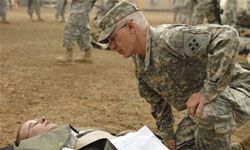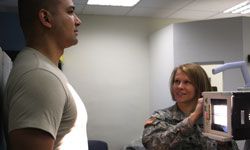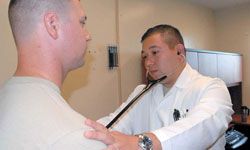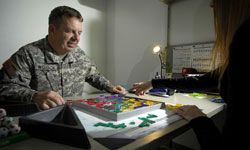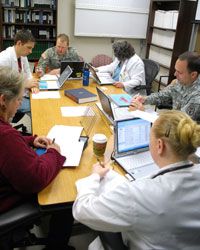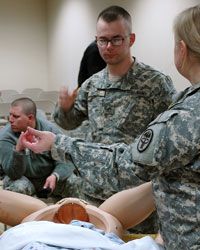Those in the medical profession have a great deal of freedom to choose where they practice. Employment of physicians and surgeons is projected to grow 22 percent from 2008 to 2018, much faster than the average for all other occupations [source: U.S. Bureau of Labor Statistics]. Specialists in particular are in demand, and of all the choices available, some choose to practice in the U.S. Army Medical Corps.
There are many good reasons for this choice. The Army Medical Corps offers great benefits to those in more than 50 different medical specialties, has a huge variety of job locations, offers career advancement and promotions, and gives medical professionals the opportunity to serve the country and support those serving on our behalf. And if you're ready for graduate-level studies, the U.S. Army Health Care Team may pay 100 percent of your tuition for any accredited medical, dental, veterinary, psychology or optometry program in the U.S. or Puerto Rico.
Advertisement
So what specialties are needed in the Army Medical Corps? Here, we'll take a look at 10 types of medical specialties that let people match their love of medicine with their love of country.
